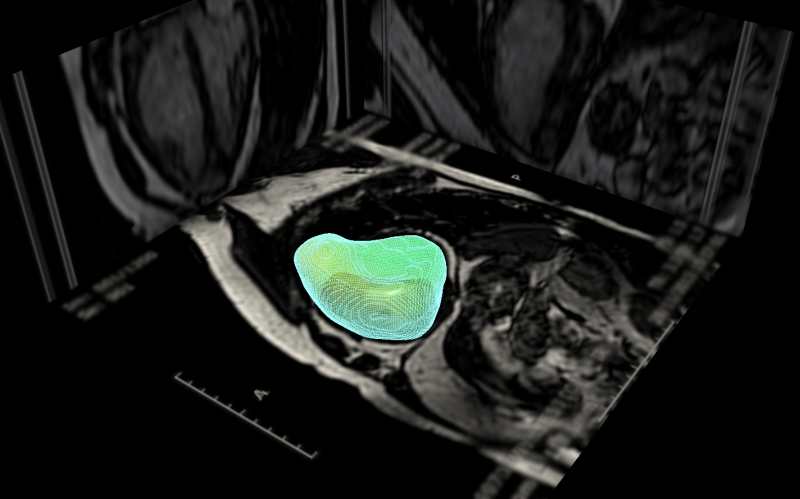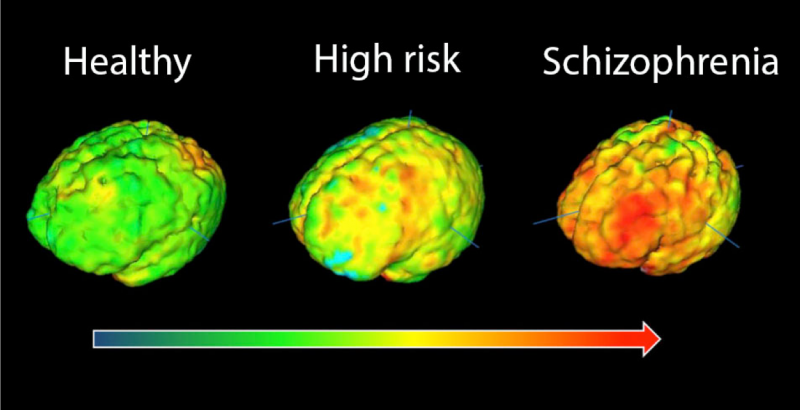On Wednesday 25 July, MRC LMS will be celebrating #NHS70 at this month’s Medicine themed Science Museum Lates. This series of preview articles will give you a taster of what our team from Hammersmith Hospital will be sharing on the evening. Handle objects featured in our ‘Heroes of Health’ comic, meet researchers using AI for heart disease treatments and researchers using psychiatric imaging for mental health treatments, and share your response to ‘should doctors do research?’
MRC LMS will be sharing cutting-edge medical research from the research teams headed by medically trained researchers Profesor Oliver Howes and Dr Declan O’Regan at our ‘Should doctors do research?’ exhibit at Science Museum Medicine Lates this Wednesday, 25 July.

Conventional two-dimensional orthogonal imaging (walls and floor) can be used to construct three-dimensional models of individual chambers of the heart (mesh). In diseases where deterioration in heart function heralds poor survival, such models may provide important information for patients and clinicians. Credit: Dr. Tim Dawes, MRC Laboratory of Medical Sciences.
Researchers from the MRC LMS Magnetic Resonance (MR) Facility, led by Declan, will be at the event to discuss their research, which uses MR imaging and artificial intelligence (AI) to more accurately predict patient outcomes of cardiovascular disease.
The technology the team uses takes high resolution MR images of hearts, measuring and recording the size and movement patterns of the heart during each heartbeat. Data from thousands of patient’s heart images are then fed into the algorithm in combination with each patient’s health records. The software then uses AI, also known as Machine Learning, to predict the most probable outcome for the patient based on the large amounts of data it has reviewed.
Declan’s work demonstrates just how profoundly the use of both big data and machine learning in healthcare is revolutionising medical science, and enabling doctors to provide more accurate, evidence-based diagnosis and treatment.
The exhibit also features the work from the MRC LMS Psychiatric Imaging research team, headed by Oliver, who will be sharing their research on psychosis and a key study into predicting whether antipsychotics will work for individual patients, which was recently featured on BBC4 programmes All in the Mind and Futureproofing-Mental Health. The teams research investigates the neurological reasons behind the low effectiveness of anti-psychotic drugs by using imaging techniques to look at dopamine synthesis in the brain, which is often a target for anti-psychotic drugs. This enables them to investigate why some drugs work for some individuals and not for others.

Representative brain images from healthy people, people at risk of schizophrenia and people with schizophrenia. Red and yellow colours show brain regions with higher levels of a protein produced by microglia when they become activated. Credit: Oliver Howes, MRC Laboratory of Medical Sciences.
Currently, anti-psychotic drugs are prescribed on a ‘trial-and-error’ basis, with patients often having varying responses and side-effects to the same drug. The Psychiatric Imaging team aim to take the guesswork out of the process of diagnosis and treatment to provide more effective care for patients.
To meet our MR and Psychotic Imaging researchers and share your response to ‘should doctors do research?’ at Lates, head to the Information Age gallery on the 2nd floor of the Science Museum on 25 July.
Medicine Lates #NHS70 is at 18:45-22:00 on 25 July at the Science Museum, London, Exhibition Road.
Science Museum Lates is a series of adults-only, after-hours themed nights that take place on the last Wednesday of every month and feature interactive activities, hands-on stands, cutting-edge researchers, live music, museum tours and a silent disco.
By Ellie McLaughlin, Science Communications Intern, GECo.
